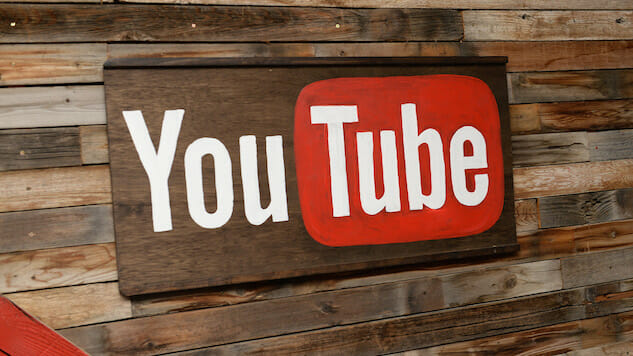The Premier League on YouTube? It’s Not as Far-Fetched as You Think
Photo by Andrew H. Walker/Getty
Two seasons ago, sources in football indicated that YouTube’s parent company, Google (now Alphabet), were considering buying UK broadcast rights to the Premier League. The bid obviously did not materialize, and BT and Sky shared an expensive victory in securing the broadcast rights.
Recently, however, YouTube announced they will be launching a subscription service to show most US basic television channels for about $35 a month, with plans to show ESPN and Fox Sports on the service, it stands to reason that the rights to show football matches may eventually follow.
Leading up to their most recent, massive UK Premier League rights deal, Sky were terrified they might lose their key product and BT were desperate to avoid retreat. Winning for both was essential, but it came at a cost of £5.1 billion. Neither Sky nor BT have flourished financially since the deal, and Sky underwent a heavy round of cost cutting to pay for it. Revenues aren’t rising fast enough for either company to sustain a massive increase when the rights come up again in 2019.
That may give Youtube the opening they need. In the last bidding round, there was talk that Discovery, the owner of Eurosport, had considered outbidding both Sky and BT in order to take Eurosport into the UK cable mainstream. That would have dealt a serious blow both Sky and BT, whose business model depends on offering customers internet, landline, mobile phone and television bundles. Without football as a selling point, their product is significantly weaker. This is an industry that requires scale to earn profits, so competition – for rights and customers – is as fierce as the offers are generous. Sky and BT might not be able to afford to spend any more on the Premier League rights, but losing them may prove even more costly.
The loser in all this is, as ever, the consumer. BT and Sky are obliged to try to make money, and have passed the steadily increasing broadcasting rights fees to their customers, who are more and more tempted to exploit VPNs, streaming sites and crooked Android boxes to watch the Premier League for less or for free. Eventually, there will come an inflection point where increased prices result in lower overall revenues. We’re not there yet, but a victorious YouTube rights bid could make things cheaper for customers regardless if it sets another record.
-

-

-

-

-

-

-

-

-

-

-

-

-

-

-

-

-

-

-

-

-

-

-

-

-

-

-

-

-

-

-

-

-

-

-

-

-

-

-

-











































